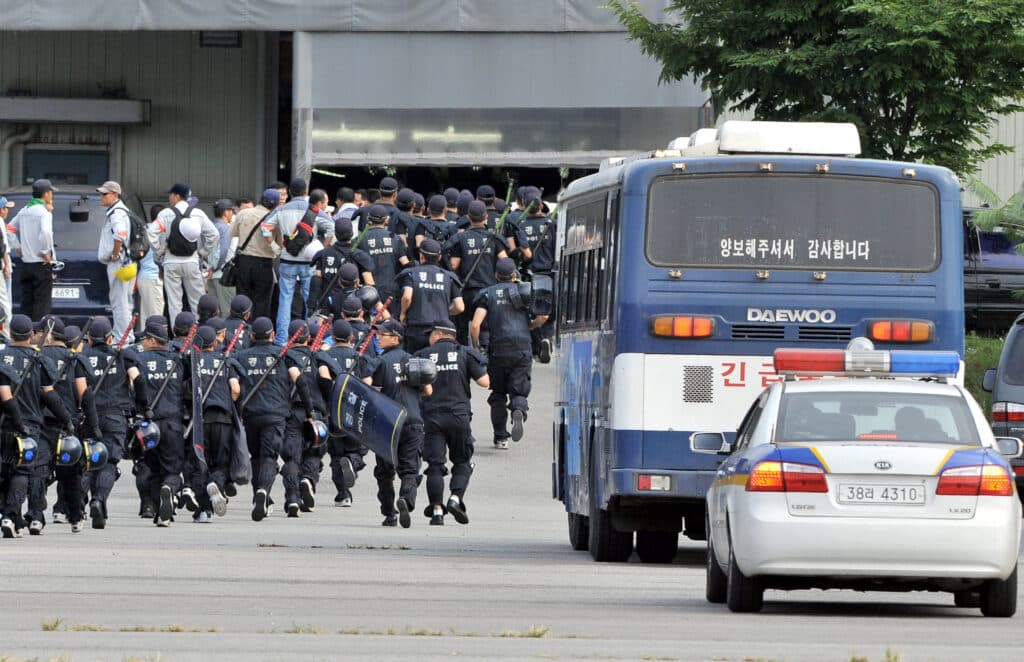
(FILES) Riot police stroll right into a constructing nonetheless held by hanging staff as a police bus to escort the strikers is seen at Ssangyong Motor in Pyeongtaek, some 70 kms south of Seoul, on August 6, 2009. The automotive plant became a battlefield pitting riot police armed with tasers and even an activist who spent 100 days perched atop a tower. This labor unrest that impressed Netflix’s most profitable present ever. | Photograph by JUNG YEON-JE / AFP
SEOUL, South Korea — A manufacturing facility became a battlefield, riot police armed with tasers and an activist who spent 100 days atop a chimney — the unrest that impressed Netflix’s most profitable present ever has all of the hallmarks of a TV drama.
This month sees the discharge of the second season of “Squid Recreation”, a dystopian imaginative and prescient of South Korea the place determined individuals compete in lethal variations of conventional youngsters’s video games for a large money prize.
READ MORE:
‘Squid Recreation’ returns on the lookout for win with season 2
‘Sonic the Hedgehog 3’ beats ‘Mufasa: The Lion King’ at field workplace
The most effective Christmas films for each temper
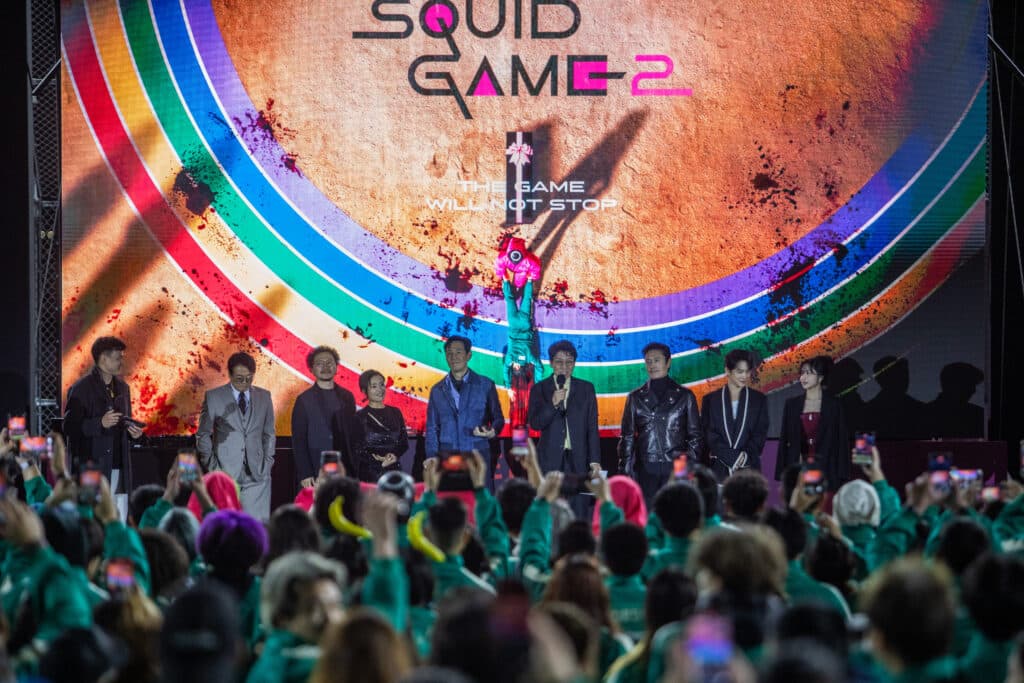
South Korean director Hwang Dong-hyuk (C) speaks onstage throughout Netflix’s “Squid Recreation: Season 2” LA premiere and fan occasion at Los Angeles Metropolis Faculty on December 12, 2024. (Photograph by Apu GOMES / AFP)
However whereas the present itself is a piece of fiction, Hwang Dong-hyuk, its director and author, has mentioned the experiences of the principle character Gi-hun, a laid-off employee, had been impressed by the violent Ssangyong strikes in 2009.
“I needed to indicate that any odd middle-class individual on this planet we dwell in at present can fall to the underside of the financial ladder in a single day,” he has mentioned.
In Might 2009, Ssangyong, a struggling automotive big taken over by a consortium of banks and personal traders, introduced it was shedding greater than 2,600 individuals, or practically 40 % of its workforce.
That was the start of an occupation of the manufacturing facility and a 77-day strike that led to clashes between strikers armed with slingshots and metal pipes and riot police wielding rubber bullets and tasers.
Many union members had been severely overwhelmed and a few had been jailed.
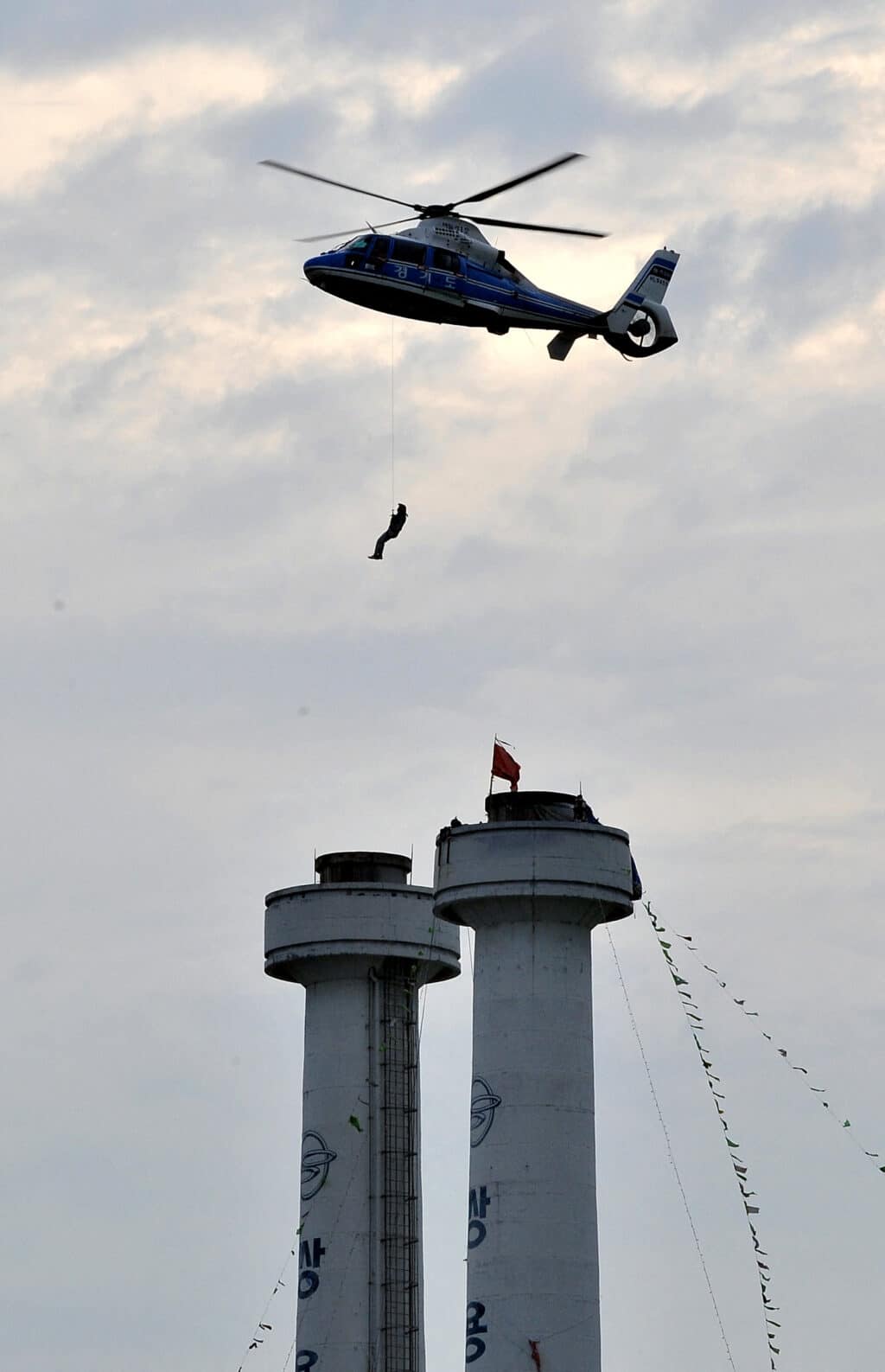
(FILES) A helicopter rescues a hanging employee from a tower after unionists and administration agreed to finish the sit-in at Ssangyong Motor in Pyeongtaek, 70km south of Seoul, on August 6, 2009. | Photograph by JUNG YEON-JE / AFP
‘Many misplaced their lives’
The battle didn’t finish there.
5 years later, union chief Lee Chang-kun held a sit-in for 100 days on high of one of many manufacturing facility’s chimneys to protest a sentence in favour of Ssangyong towards the strikers.
He was equipped with meals from a basket hooked up to a rope by supporters and endured hallucinations of a tent rope reworked right into a writhing snake.
Some who skilled the unrest struggled to debate “Squid Recreation” due to the trauma they endured, Lee informed AFP.
The repercussions of the strike, compounded by protracted authorized battles, precipitated important monetary and psychological pressure for staff and their households, leading to round 30 deaths by suicide and stress-related points, Lee mentioned.
“Many have misplaced their lives. Individuals needed to endure for too lengthy,” he mentioned.
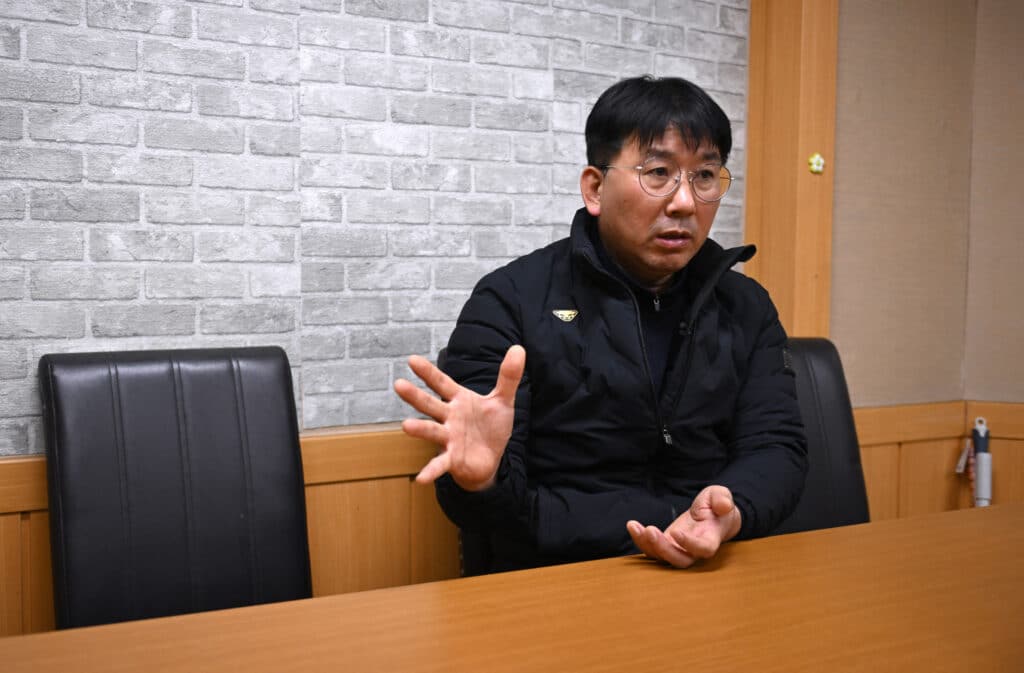
This image taken on November 5, 2024 reveals Lee Chang-kun, a employee at South Korea’s KG Mobility — previously operated as Ssangyong Motor — who took half in a 100-day sit-in strike perched on an organization tower in 2009, talking throughout an interview with AFP at a labour union workplace in Pyeongtaek. | Photograph by Jung Yeon-je / AFP
He vividly remembers the police helicopters circling overhead, creating intense winds that ripped away staff’ raincoats.
Lee mentioned he felt he couldn’t hand over.
“We had been seen as incompetent breadwinners and outdated labour activists who had misplaced their minds,” he mentioned.
“Police stored beating us even after we fell unconscious — this occurred at our office, and it was broadcast for therefore many to see.”
Lee mentioned he had been moved by scenes within the first season of “Squid Recreation” the place Gi-hun struggles to not betray his fellow rivals.
However he wished the present had spurred real-life change for staff in a rustic marked by financial inequality, tense industrial relations and deeply polarised politics.
“Regardless of being broadly mentioned and consumed, it’s disappointing that now we have not channelled these conversations into extra helpful outcomes,” he mentioned.
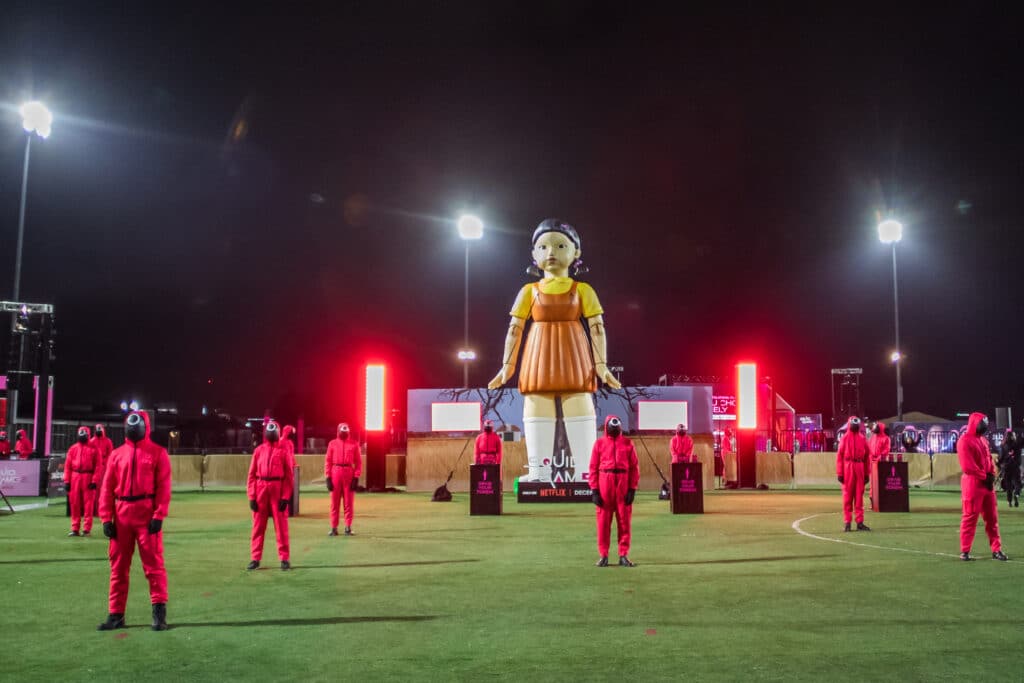
Squid Video games Guards are seen on the opening ceremony of the Los Angeles premiere and fan occasion for Netflix’s “Squid Recreation: Season 2” at Los Angeles Metropolis Faculty on December 12, 2024. (Photograph by Apu GOMES / AFP)
‘Shadow of state violence’
The success of “Squid Recreation” in 2021 left him feeling “empty and pissed off”.
“On the time, it felt just like the story of the Ssangyong staff had been diminished to a commodity within the collection,” Lee informed AFP.
“Squid Recreation”, the streaming platform’s most-watched collection of all time, is seen as embodying the nation’s rise to a worldwide cultural powerhouse, a part of the “Korean wave” alongside the Oscar-winning “Parasite” and Okay-pop stars similar to BTS.
However its second season comes because the Asian democracy finds itself embroiled in a few of its worst political turmoil in many years, triggered by conservative President Yoon Suk Yeol’s failed bid to impose martial regulation this month.
Yoon has since been impeached and suspended from duties pending a ruling by the Constitutional Courtroom.
That declaration of martial regulation risked sending the Korean wave “into the abyss”, round 3,000 individuals within the movie business, together with “Parasite” director Bong Joon-ho, mentioned in a letter following Yoon’s stunning resolution.
Vladimir Tikhonov, a Korean research professor on the College of Oslo, informed AFP that a few of South Korea’s most profitable cultural merchandise spotlight state and capitalist violence.
“It’s a noteworthy and fascinating phenomenon — we nonetheless dwell within the shadow of state violence, and this state violence is a recurrent theme in extremely profitable cultural merchandise.”














